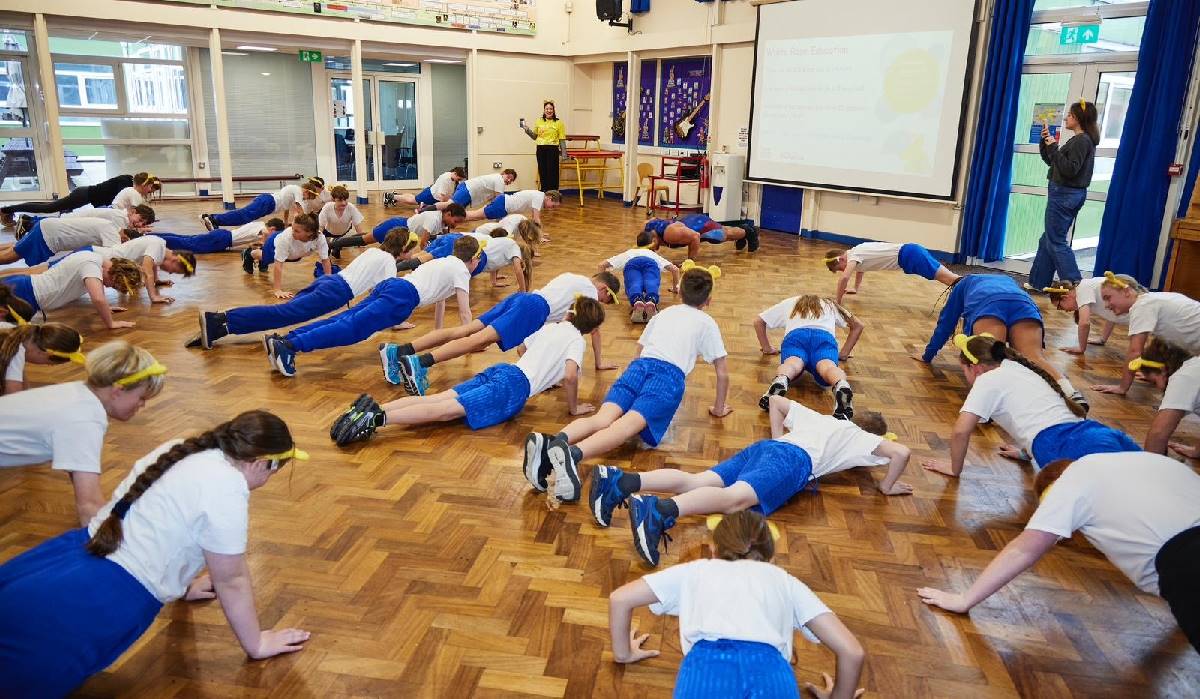Antibiotic resistant infections rise

NATIONAL surveillance data
published by the UK Health Security Agency today, show that antibiotic resistant
infections in 2023 surpassed pre-pandemic levels. There were an estimated 66,730
serious antibiotic resistant infections in:- 2023, compared to 57,871 in:- 2022 and
62,314 in 2019.
Nationally, the burden of resistant infections rose by 3.5% between:- 2019 and
2023. In the North West Region, however, the AMR burden rate showed improvement
from:- 2022 to 2023, decreasing from:- 39.2 to 35.8 per 100,000.
Despite this improvement, the North West still reported the second-highest AMR
burden among English Regions, with the 2023 rate representing 2,688
life-threatening, resistant bacteraemias (bacterial bloodstream infections). Out
of a total of 12,611 bacteraemia in the North West in 2023, 1 in 5 was caused by
bacteria resistant to 1 or more antibiotics from a defined group.
In 2023, London and North West Regions continued (since October 2020, when
mandatory reporting began) to report the largest number of acquired
carbapenemase-producing Gram-negative bacteria.
The English Surveillance of Antibiotic Prescribing and Utilisation Report (ESPAUR)
shows that the majority of antibiotic resistant bloodstream infections in the
last 5 years (65%) were caused by E. coli; a common cause of urinary tract
infections, diarrhoea, vomiting and fever.
Antibiotic resistant bacteria of any kind are less likely to respond to
treatment, causing serious complications, including:- bloodstream infections,
sepsis and Hospitalisation. People who get a bacterial infection that is
resistant to 1 or more antibiotics are more likely to die within 30 days
compared to those who have an antibiotic sensitive infection.
Antibiotic resistance occurs naturally but managing antibiotic consumption and
only using them when appropriate is essential to limiting the emergence of
antibiotic resistant bacteria and associated deaths related to these infections.
This year's report provides additional analysis of differences in antibiotic
resistance burden in England in different populations and identifies
geographical variation in the levels of antibiotics prescribed across England.
Nationally, total antibiotic consumption was:- 17.6 defined daily doses (DDDs)
per 1,000 inhabitants per day (DID) in England in 2023, an increase of 2.4% in
2023 compared with antibiotic consumption in:- 2022,
between:- 2019 and 2023, the greatest decrease in both total and secondary care
antibiotic consumption was observed in the North West, by:- 5.1% and 13.9%,
respectively.
With a rate of 18.4 DID in 2023, the North West is no longer the Region with
greatest level of antibiotic consumption.
Most antibiotics in England are prescribed in primary care, with general
practice accounting for 72% of overall prescribing in 2023. To strengthen
antimicrobial stewardship in this key setting, UKHSA North West and NHS England
North West delivered antimicrobial stewardship training (Treat Antibiotics
Responsibly, Guidance Education and Tools) to 120 primary care prescribers
across the Region during:- 2023 and 2024. These trainers have now gone on to
cascade the training to over 600 prescribers across the Region, enabling
clinicians to reduce inappropriate prescribing of antibiotics in general
practice.
The problem of antimicrobial is not limited to bacteria resistant to antibiotics
but also fungi and viruses resistant to antifungal and antiviral medicines,
respectively.
In 2023, the North West had the highest systemic antifungal prescribing rate and
the highest reported incidence of fungaemia with:- 4.4 cases per 100,000
population.
Dr Will Morton, Consultant in Health Protection from UKHSA, said:-
"Antibiotics are essential to treat serious bacterial infections, such as
meningitis, pneumonia and sepsis but inappropriate use or overuse will mean they
stop working against life-threatening conditions. Increasingly the 1st
antibiotics that patients receive aren't effective at tackling their infections.
That's not just an inconvenience; it means they are at greater risk of
developing a severe infection and sepsis. This extends to everyone, as in the
absence of effective antibiotics, cancer treatments and common surgeries like
caesareans would become very high-risk procedures and for many people, could
lead to infections that cannot be treated and may become fatal. Our declining
ability to treat and prevent infections is having an increasing impact,
particularly on our poorest communities. While we work with partners to innovate
new approaches and life-saving treatments, there are steps everyone can take.
Take up the vaccinations you are eligible for, to help stop infections in the
1st place. Only take antibiotics if you have been told to do so by a healthcare
professional. Do not save some for later or share them with friends and family.
This isn't just for your own health; it's about protecting everyone in our
communities and future generations."
This latest data provides important insight into the scale of the problem we are
facing and will help guide the goals set out in the new:- 'UK AMR National Action
Plan 2024 to
2029' earlier this year. This includes:- ambitions to reduce total
antibiotic use in human populations by:- 5% from the 2019 baseline and investments
in new tools and technologies to develop long lasting solutions.
Patient and campaigner, Caroline Sampson, explains how an antibiotic resistant
infection has impacted her life:- "For 8 and a half years, I have had a
chronic urinary tract infection (UTI). No form of antibiotics has successfully
treated it. It has derailed by life in every possible way. I can no longer enjoy
simple pleasures like eating out, going to the theatre or inviting friends over.
The daily symptoms are debilitating and painful. Trying to accomplish the
smallest task takes a huge amount of effort. The impact on my mental health has
been enormous and I live with daily anxiety that the infection could develop
into Urosepsis. I just want my life back. The threat of antibiotic resistant
infections to us all cannot be underestimated."
Gladiator Steel visits Woodlands Primary School in Formby ahead of the BBC Children in Need Big Night of TV

AHEAD of the annual
fundraiser that took place on:- Friday, 15 November 2024, BBC
Gladiator Steel has embarked on an epic week long Schools tour up
and down the UK, to inspire the nation to get active and move like a
Gladiator to fundraise for BBC Children in Need. Along the way,
Steel popped into Woodlands Primary School in Liverpool who entered
the competition to win the Gladiators Schools visit by signing up
for a Free Schools Fundraising Pack which outlines how Schools can
take part to raise funds for the charity.
While at the School, Steel put on an extra special Movement and
Motivation Masterclass for the Schoolchildren. The workshop saw the
Schoolchildren take on the Gladiator head to head in a fight of
fitness, to see who could complete the most star-jumps in a minute.
Steel also empowered the children to have confidence like a
gladiator and got them to think about their own Gladiator
superpower, whether it's being kind, a good listener or helping
others.

During the visit to Woodlands Primary School, Steel went round and
met with each class, and said:- "School fundraisers ready! I
was thrilled to be able to meet all the brilliant children and
faculty at Woodlands Primary School in Liverpool today to challenge
them all to move like a Gladiator in our Movement and Motivation
Masterclass. I am honoured to be touring the UK with BBC Children in
Need this week as it is an amazing opportunity to inspire the next
generation to get active, improve their wellbeing while raising
money for Pudsey. Everything that we raise together will help BBC
Children in Need be there for children and young people when they
need it most."
Jayne Nel, Headteacher at Woodlands Primary School said:-
"Children in Need day is always 1 of the children's favourite days
of the year, and this year we are holding a 'Wear Spots to Raise
Lots' event and as a nod to TV's Gladiators, we are setting up a
fun-filled obstacle course on the School field. It is so special
that Steel has stopped by the School on his tour to put on an
incredible session inspiring the children to be motivated, energised
and to be confident like a Gladiator."


As a massive thank you to
all Primary Schools who fundraised this year and challenged
themselves to make life lighter for children, Schools where able to
join a
livestreemed to watch the cast of the BBC Gladiator take on
spectacular School-game inspired challenges. As well as cheering
them along, Schools also got shout outs, time to ask questions and
the chance to vote for their favourite Gladiator.
In 2023 Schools across the UK, raised nearly £4m which helped to
support 30,000 children and young people who are facing challenges
in their lives. This year, Schools across the UK are being asked to
throw their support behind the appeal, and encourage parents, pupils
and families to challenge themselves to help make life lighter for
children and young people.
Across the North West, BBC Children in Need currently fund 124
projects up to the value of £7,487,839 to provide a positive
environment for where children and young people can build
self-esteem and support their overall mental and physical wellbeing.
The need has never been greater as right now the charity is only
able to help 1 in 8 of the organisations who apply for funding. Only
with the support of the UK public can we continue to lighten the
load for hundreds of thousands of children when they need us most.

Money raised during the 2024 appeal will help BBC Children in Need to continue working in communities across the 4 nations, funding amazing people in:- family centres, community spaces, youth clubs and refuges; homeless shelters, hospices and helplines. This year, BBC Children in Need is asking the public to make life lighter for children all across the UK. Head to:- BBC.Co.UK to find out more and yes, you can still donate!









